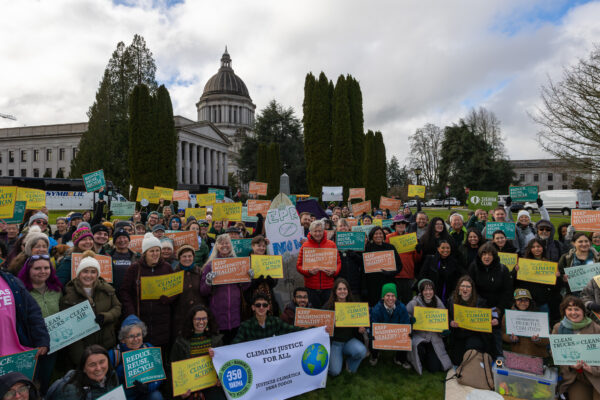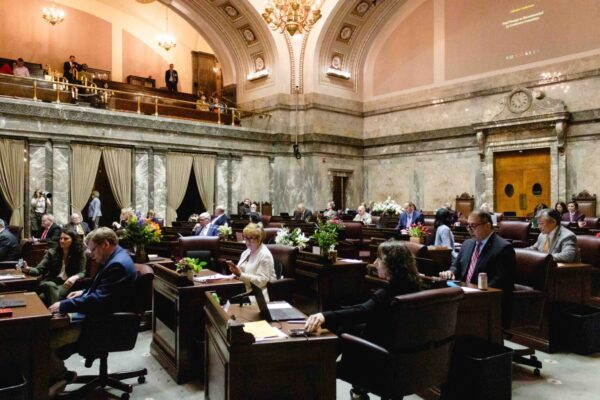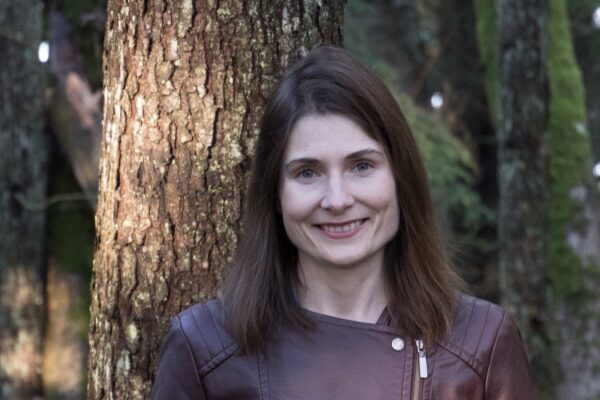Her message about the proposal to increase the Hazardous Substance tax to pay for stormwater cleanup was clear: “It’s only fair that we ask those who create the problem to solve the problem, and that’s our oil and chemical companies.”
“We’ve done the science and we know what the problem is,” she said. “We know how to take care of it, but we simply do not have the necessary funding to get the job done.”
Last week, the Governor came out in support of the Clean Water Act of 2010 and included revenue from the legislation in her budget proposal to the state legislature. Funding from the proposal was included in the House Capital and Transportation Budgets. The bill also temporarily invests in core services through the general fund, which includes public health and other environmental safeguards.
The Governor last night asked callers to support the bill, “Now is the critical time for folks who care to get engaged and get involved with letters, telephone calls to the hotline, coming down to visit their legislator, whatever they can do. These next few days are very important.”
“We’re trying to get the message to them [oil companies] loud and clear: you’ve made billions of dollars in profits. You have left us with the cleanup and taxpayers shouldn’t have to pay.”
Toxic pollution from stormwater runoff is Washington State’s biggest water quality problem from Puget Sound to the Spokane River. According to the Department of Ecology, over 14 million pounds of toxic pollutants wash into Puget Sound each year.
This Clean Water Act of 2010 is prime-sponsored by Rep. Timm Ormsby (Spokane) and Sen. Ed Murray (Seattle). In addition to Governor Gregoire, supporters of this proposal include the Environmental Priorities Coalition, Association of Washington Cities, Washington State Association of Counties, Washington State Labor Council, and Washington State Building and Construction Trades Council.



